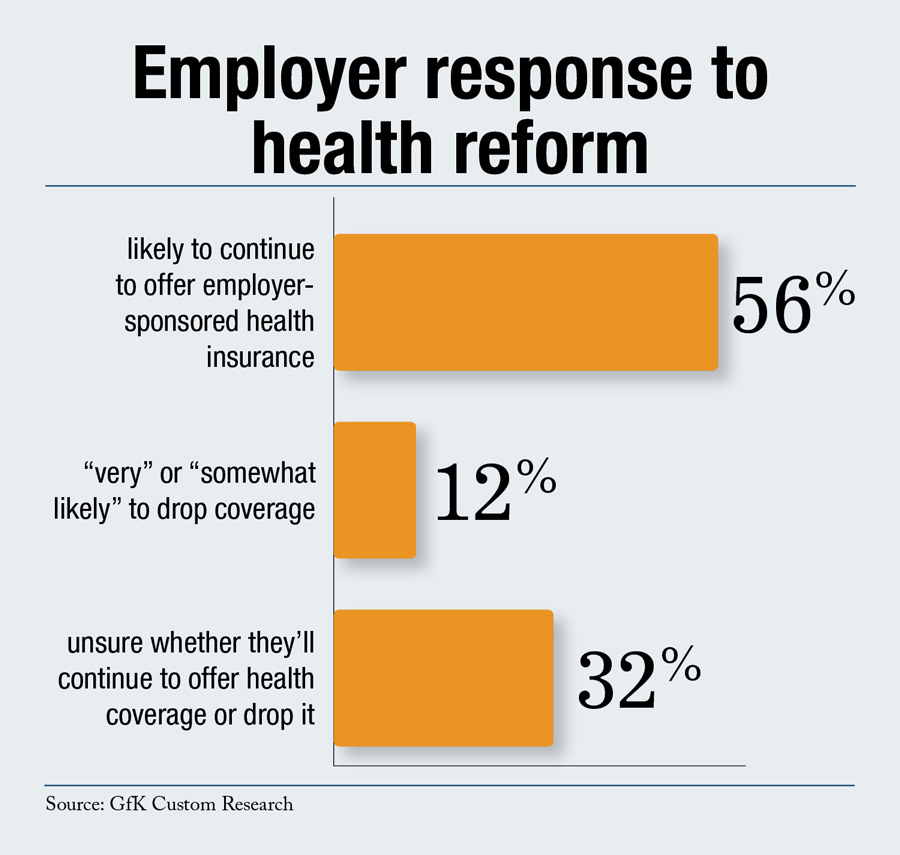Employers are still torn on how they will respond to health care reform, but a survey from GfK Custom Research North America says most are, at the very least, skeptical of its potential.
Though the majority of employers surveyed (56 percent) say that they're likely to continue to offer employer-sponsored health insurance after health care reform is enacted, 12 percent of benefits decision-makers say they would be very or somewhat likely to drop coverage. And many—32 percent—of the 502 private-sector companies surveyed are unsure what they will do.
Projections vary by the size of employer, with only 4 percent of decision-makers surveyed from those companies with 500 or more employees considering terminating coverage completely. In addition, decision-makers who say they are familiar with health care reform are less likely to foresee their dropping coverage (7 percent, versus 15 percent among those not familiar).
Recommended For You
"This survey suggests that firms aren't considering a wholesale flight from employee health care coverage as health care reform is implemented," says Tim Nanneman, vice president and director of Health Insurance Research. "However, many employers are skeptical about the potential effects of health care reform."
Many surveyed worry reform provisions either won't slow the increase in health care costs or will make cost trends worse.
Only 11 percent believe costs of health benefits will increase more slowly than if no reform had passed, while 51 percent think that costs will increase more rapidly. Many remain uncertain about the impact of health care reform, with 38 percent not sure about the effect of health reform on future costs.
Support for health care reform is lacking from those surveyed who have experienced the greatest recent cost increases. Those who have experienced the highest recent price increases are also the least likely to see health care reform as potentially improving the situation. Thirty percent say they have seen costs increase by 9 percent or more annually over the last three years, and these companies have the most negative attitudes toward health care reform.
As employers have seen spikes in the cost of offering health care benefits, many report they have reacted by increasing premium costs, co-pays and deductibles for employees and dependents. With health care costs continuing to increase in recent years, fully 20 percent of employers say they have even seriously considered cessation of health care benefits.
"It seems that, while the social contract between employers and employees remains secure for the time being, there are signs that it is weakening among some employers," Nanneman says. "This suggests that as health insurance exchanges become operational, for example, some employers will be receptive to having their employees get insurance via this new option rather than with traditional employer-sponsored insurance."
© 2025 ALM Global, LLC, All Rights Reserved. Request academic re-use from www.copyright.com. All other uses, submit a request to [email protected]. For more information visit Asset & Logo Licensing.







